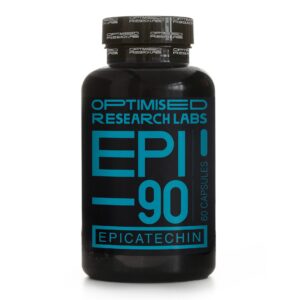What is Epicatechin?
Epicatechin: The most beneficial supplement you’ve probably never heard of
Here at Optimised Research Labs, we pride ourselves on employing the findings of the latest cutting-edge research to produce the most effective, state-of-the-art, evidence-based products. Our research team constantly monitors the development of the very latest and most innovative ergogenic and health promoting substances and the research that demonstrates their beneficial effects. Sometimes, however, in order to move forward, we need to look back, as modern science demonstrates the benefits of substances that have been used for hundreds, and sometimes even thousands, of years by indigenous people all over the world to benefit their health, vitality and performance. One such substance is Epicatechin.
What is Epicatechin?
Epicatechin is a flavonoid, a plant compound present in a variety of foods. Technically speaking, flavonoids are a specific subgroup of polyphenols. These are naturally occurring substances found in plants that are known for their potent antioxidant and anti-inflammatory properties. Epicatechin is found in particularly high concentrations in black grapes, cocoa, apples, raspberries, cherries, and green tea (Camellia sinensis).
The medicinal use of Epicatechin rich foods dates back to the ancient civilizations of Asia and Central America. For example, the Kuna Indians of Panama have long been known for their remarkably low rate of cardiovascular disease, which is believed to be linked to their high consumption of cocoa. Epicatechin containing foods have also been highly prized in traditional Chinese and Ayurvedic medicine for thousands of years.
More recent scientific investigation has not only demonstrated the diverse variety of health benefits associated with the consumption of Epicatechin, such as a reduced risk of cardiovascular disease and diabetes, but also benefits for performance, including increased muscle size and strength and enhanced nitric oxide production and blood flow. This has brought this previously little-known supplement to the attention of competitive athletes, bodybuilders and recreational exercisers engaged in demanding exercise.
Not so long ago, we would have needed to consume considerable amounts of Epicatechin containing foods to enjoy its many benefits, but now, due to advances in food technology, they come in the form of a concentrated supplement.
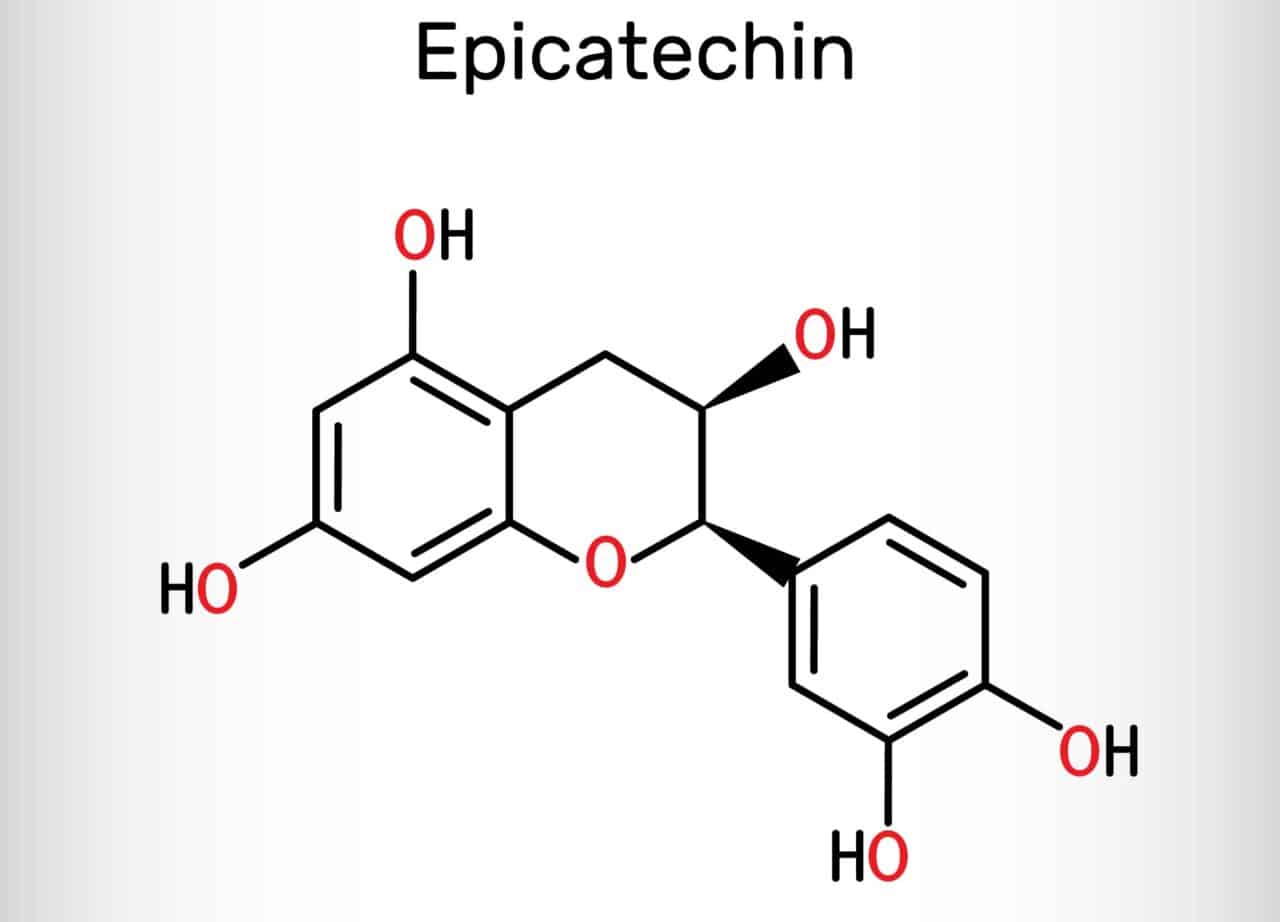
What are the benefits of Epicatechin?
Epicatechin has been shown scientifically to provide a wide range of benefits for health and performance. These include, but are not limited to:
- Enhancing muscle growth (1,2,4,8,9)
- Increasing muscular strength (1,2,9)
- Inhibiting myostatin (1,2,6,7)
- Increasing follistatin (1,2,5,6,7)
- Increasing nitric oxide levels (5,15,16,18,20)
- Increasing blood flow (12,15,16,17,20,22)
- Enhancing mitochondria number and function (3,5,6,7,8,14,21,22)
- Providing anti-ageing effects (1,2,10,11,12,23)
- Improving physical performance (1,6,7,9,11,22)
- Enhancing cardiovascular health (15,16,17,18,19,20)
- Protecting against muscle mass loss (1,2,3,4,5,8,9,11,23)
- Increasing fat metabolism (3,13,14,23)
- Improving carbohydrate metabolism (1,3,13,14,23)
- Enhancing cognitive function (12)
- Providing anti-inflammatory effects (8)
What does the science say about Epicatechin?
Epicatechin has been the subject of numerous studies, which have demonstrated its many benefits for health and performance. As we review a selection of that research, you will begin to see why Epicatechin is such an effective product and how it may benefit you.

Can Epicatechin increase muscle growth and strength?
The process of building muscle is a complex one, and while the role of resistance training and the consumption the appropriate amounts of certain nutrients, particularly protein, are well documented, less well understood are many of the underlying physiological mechanisms responsible for muscle growth and how certain natural substances can have a positive influence on these mechanisms to maximise gains in muscle size and strength. In recent years, Epicatechin has received considerable interest from strength athletes due to the increasing number of studies demonstrating its ability to increase muscle (1,2,4,8,9).
Unlike protein supplementation, which increases the amino acids available for muscle protein synthesis and testosterone, which binds to androgen receptors in muscle cells to stimulate protein synthesis, Epicatechin helps to increase size and strength by reducing levels of myostatin and increasing follistatin. Myostatin is a myokine, a type of regulating protein released by muscles. Opposing myostatin is a myokine called follistatin. Unlike myostatin, which suppresses muscular growth, follistatin promotes muscle growth by binding to the myostatin receptor and inhibiting the function of myostatin.
Consequently, by shifting the balance between myostatin and follistatin in follistatin’s favour, we can stimulate greater muscle growth.
Gutierrez-Salmean et al., (1) investigated the effects of Epicatechin supplementation on myostatin and follistatin in human subjects. The study showed that as we age, levels of myostatin significantly increase (28%) while those of follistatin decrease (30%). This combination results in a loss of muscle mass over time. In the trial, participants were given 150mg of Epicatechin per day for 7 days. This resulted in a 49.2% increase in the ratio follistatin to myostatin, which was accompanied by a 7% increase in strength.
Mafi and colleagues (2) achieved similar results when they conducted a randomised control trial, considered to be the ‘gold standard’ in research, to investigate the effects of Epicatechin supplementation combined with 8 weeks of resistance training on muscle. The results showed that the combination of resistance training and Epicatechin produced a significant decrease in myostatin and an increase in follistatin, follistatin/myostatin ratio, leg press and chest press strength, and muscle mass in comparison to a placebo.
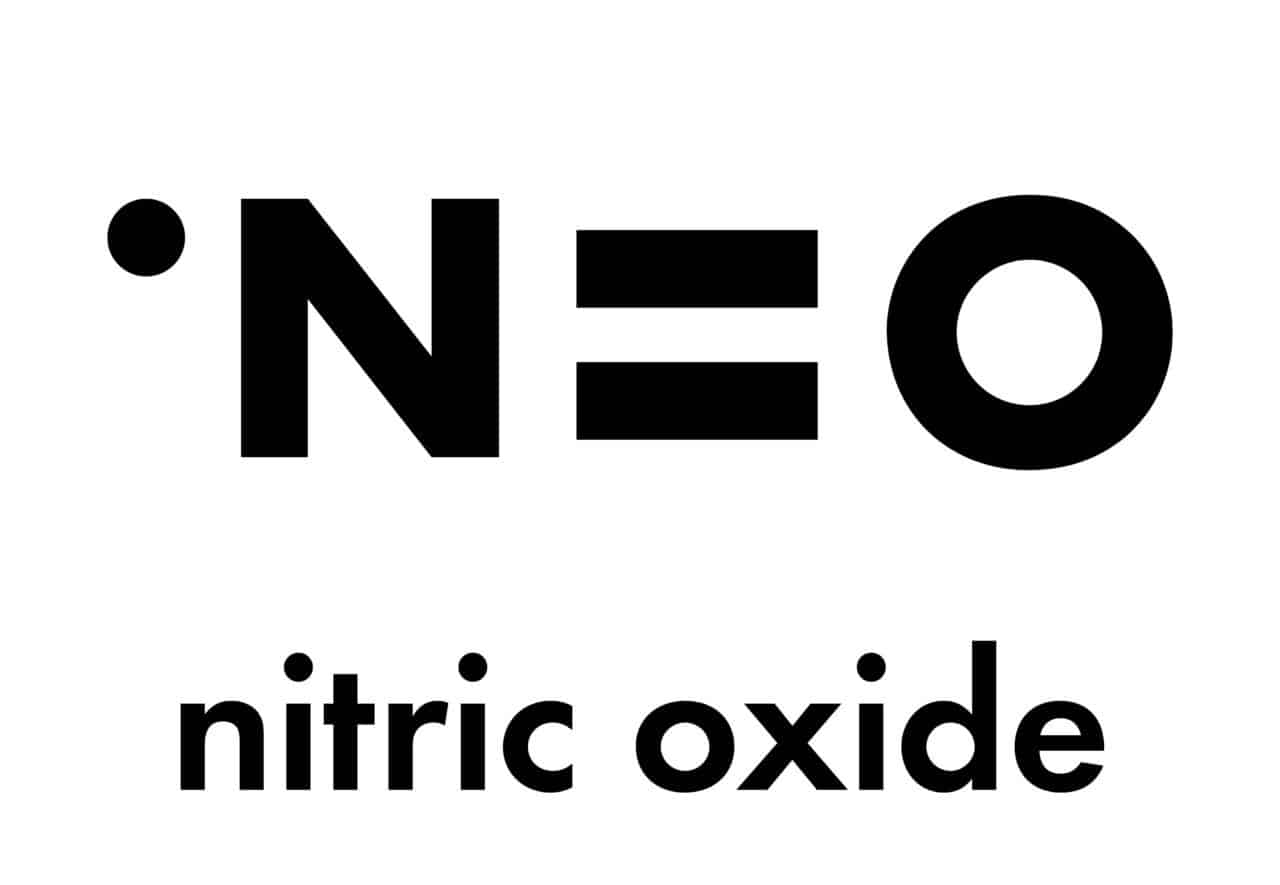
Can Epicatechin increase nitric oxide levels and blood flow?
Having a good blood supply to your muscles is not only essential for their health, but also their performance, as it provides the oxygen and nutrients they need to contract and removes the metabolic byproducts and the heat generated by their contraction. The much sort after ‘pump’ that occurs during resistance training results from a temporary increase in blood in the working muscle.
Nitric oxide is a molecule that performs a number of important chemical signalling functions in the body, including ensuring a good blood supply due to its role in vasodilation. This is the process whereby arteries and veins widen by relaxing the smooth muscle cells in their walls. In addition to increasing blood flow to the working muscles, vasodilation also helps to lower blood pressure, and is essential for male reproductive health. In fact, it is used in some medications to treat erectile dysfunction.
Numerous studies have demonstrated Epicatechin’s ability to increase nitric oxide levels and blood flow (5,12,15,16,17,18,20,22).
A randomized, placebo-controlled trial by Loke et al., (15) investigated the effects of Epicatechins on nitric oxide production and the function of the lining of the blood vessels known as the endothelium, which causes vasodilation to allow blood to flow freely by producing nitric oxide. The results showed that supplementation with Epicatechins produced a significant increase in nitric oxide production and improved endothelial function.
Improving endothelium function not only increases blood flow to exercising muscles but also has considerable benefits for health. Litterio and colleagues (18) found that supplementation with Epicatechins prevented the significant increase blood pressure (42mm Hg) that was predicted when nitric oxide production was inhibited artificially under experimental conditions, and restored nitric oxide availability.
The delivery of oxygen and nutrients from the blood to muscle tissue is facilitated by tiny blood vessels known as capillaries. Epicatechins not only increase blood flow by enhancing vasodilation of existing blood vessels but also by the development of new capillaries within muscle tissue, a process referred to as angiogenesis. Exercise has long been known to stimulate this process, and more recent evidence shows that supplementation with Epicatechins enhances this effect further (20,22). For example, The results of a study by Ramirez-Sanchez (20) showed that while that exercise or Epicatechins alone can stimulate angiogenesis by ~30%, when combined they produce further significant increases of approximately 50%.
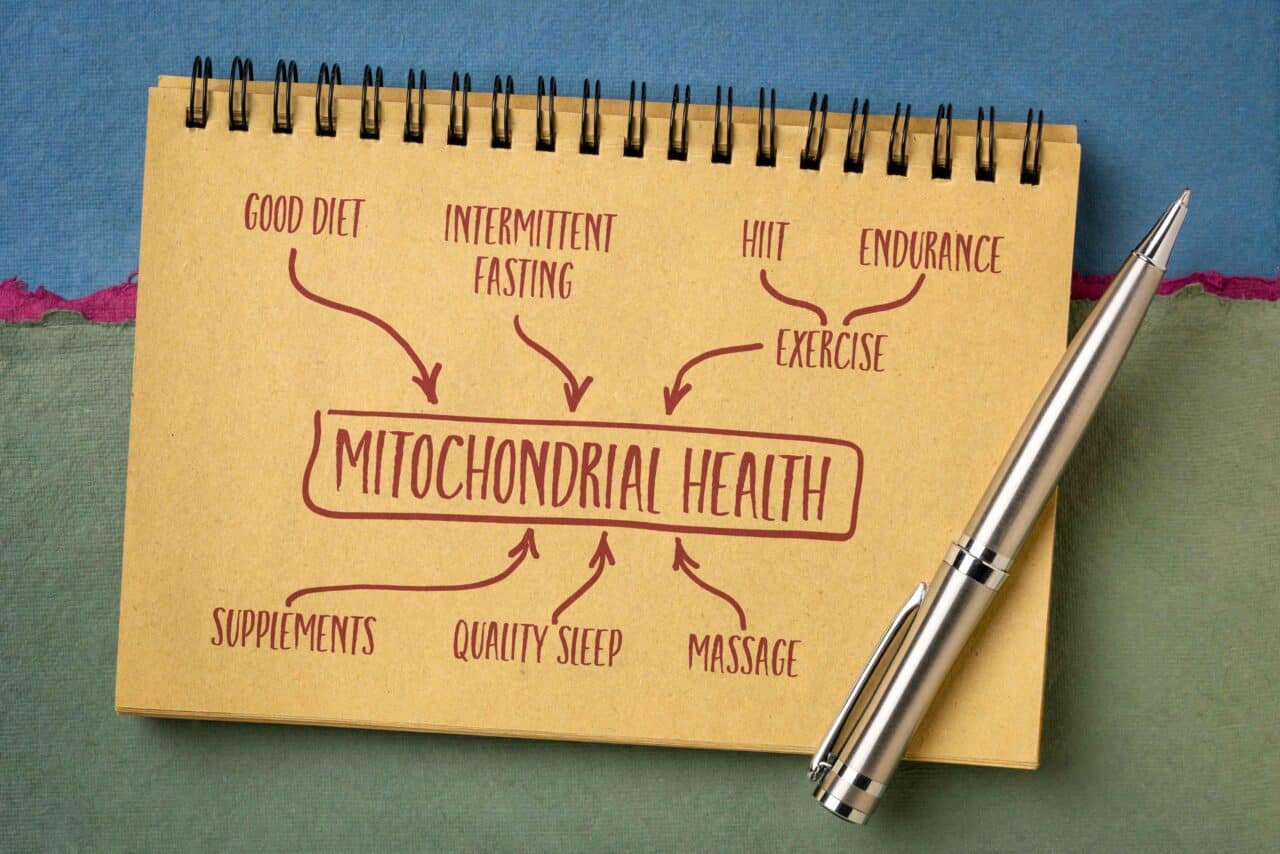
Can Epicatechins increase mitochondria number and function?
Mitochondria may be small, having an average length of 2 thousandths of a millimetre and a diameter of just 1 thousandth of a millimetre (for the comparison, the diameter of a human hair typically ranges from 0.017 to 0.18 millimeters) but they have massive impact on our health and performance. This is because these tiny organs are known as the ‘powerhouses of the cell’, as they not only provide energy needed for exercise, but also 90% of the energy needed to sustain life. They do this by using oxygen to convert the carbohydrates, fats, and proteins that we eat, into forms of chemical energy that the body can use.
Increasing the number and size of our mitochondria, a process known as mitochondrial biogenesis, provides a host of benefits, such as improving energy production, enhancing exercise performance, reducing fatigue, enhancing recovery, reducing age-related decline in cognitive function, and reducing the risk of chronic disease.
Now an increasing body of research is demonstrating how Epicatechin can enhance this process (3,5,6,7,8,14,21,22).
A study by Lee and colleagues (22) found that 8 weeks of supplementation with Epicatechin combined with exercise, increased mitochondrial biogenesis, resulting in a significant increase in endurance exercise performance. Interestingly, the study also showed that supplementation with Epicatechin combined with exercise increased angiogenesis. This means that the Epicatechin supplementation not only helps to increase the function and number of mitochondria, but also the number of blood vessels that supply the oxygen and nutrients to them.
Mitochondrial function not only affects our physical performance, but also has much wider implications for our health. A review by Daussin et al., (21) demonstrated a link between a broad range of human diseases and mitochondrial function. For example, skeletal muscle mitochondrial abnormalities are believed to contribute to insulin resistance and muscle fatiguability in type 2 diabetes. Mitochondrial dysfunction is also being associated increasingly with an array of neurodegenerative diseases, including Alzheimer’s.
On a positive note, the review also showed that supplementation with Epicatechin can improve mitochondrial function. Thereby, helping to address those conditions associated with dysfunction, which include obesity.

Can Epicatechin help to reduce body fat?
A number of recent studies highlight the potential benefits of Epicatechin for maintaining healthy body composition through its effects on fat and carbohydrate metabolism and overall health (3,13,14,23). Gutiérrez-Salmeán and colleagues (13) found that just 1 milligram of Epicatechin per kilogram of body weight increased fat oxidation (fat burning) and lowered blood glucose after a meal. This means that even at rest, the subjects’ bodies were chipping away at their body fat to supply energy while sparing glucose, which could be used to fuel exercise.
If you are a bodybuilder or just like to maintain a lean physique, excess body fat can be something of an annoyance and hinderance to your body composition goals. However, the long-term effects of excessive body fat go far beyond aesthetics, as obesity has serious adverse effects on health by contributing to the development of a range of pathologies, including insulin resistance, type 2 diabetes, cardiovascular disease, non-alcoholic fatty liver disease, mental health issues and cancer. A recent review (14) demonstrated the beneficial effects of the Epicatechin on such obesity-related issues and explained the mechanisms responsible. These include reducing high circulating levels of glucose and fats, chronic systemic inflammation, oxidative stress, insulin resistance, mitochondria dysfunction and imbalances in gut bacteria.
Can Epicatechin reduce cardiovascular disease?
Cardiovascular disease is one of the major causes of death in the UK. It accounts for approximately 170,000 deaths each year, which is an average of 480 per day. Eating a healthy diet and exercising, although reducing the risk, do not make us immune to suffering from cardiovascular disease, particularly if an individual is in a high-risk group. The consumption of Epicatechin has been shown to reduce that risk (15,16,17,18,19,20). For example, Dower and colleagues (19) found that over a 25-year period, the risk of death from cardiovascular disease was 38% lower in subjects whose Epicatechin intake was in the highest third compared to those in the lowest third. A high Epicatechin intake was also associated with a 46% lower risk of death in men with known cardiovascular disease.
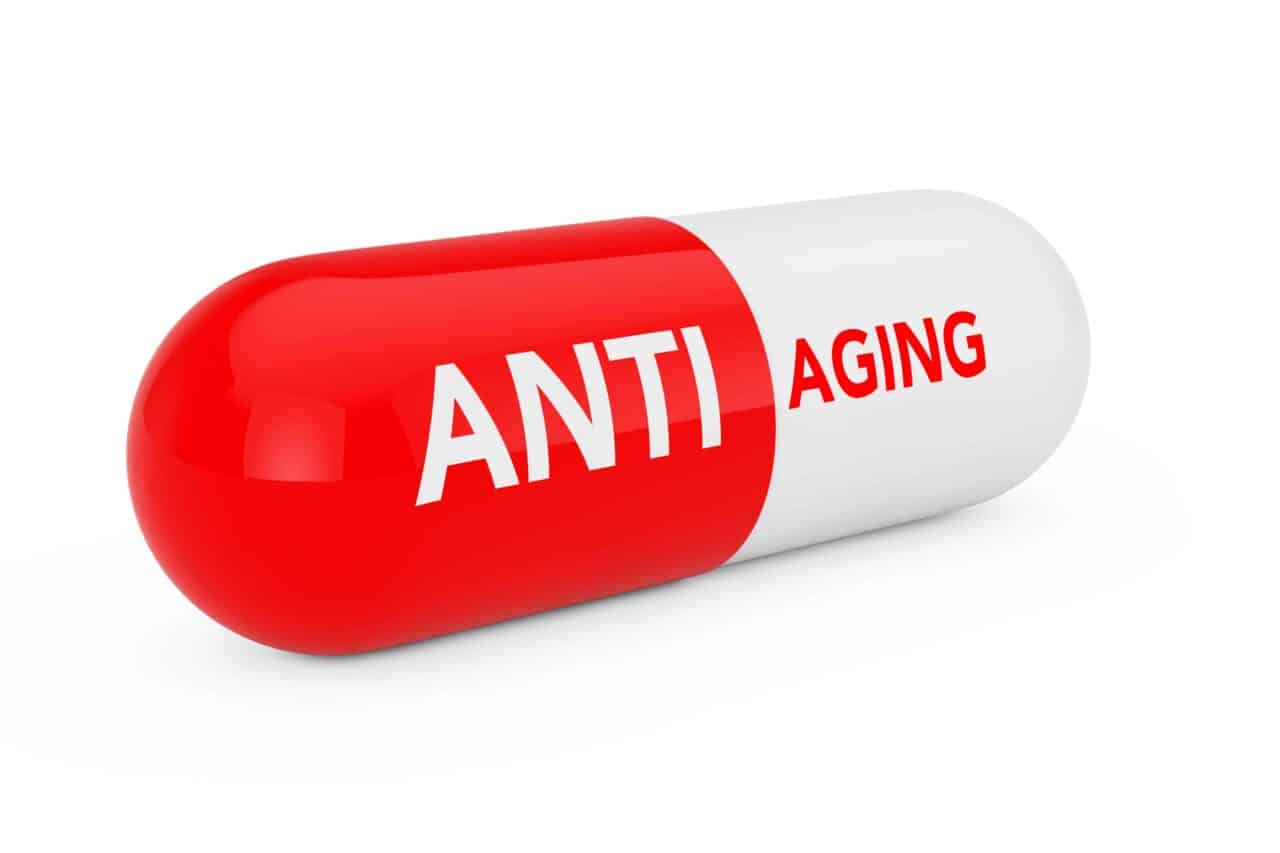
Can Epicatechin reduce the effects of ageing?
If you are trying to build a fit, lean, and healthy physique, then ageing does not seem to offer many benefits, as it is associated with a decline in many aspects of our physiological and cognitive function. Epicatechin has been investigated in various studies for its potential anti-aging benefits (1,2,10,11,12,23) and the results suggest that it is a promising compound for mitigating some effects of aging, as it has been shown to improve muscle health, brain health, cognitive ability and mitochondrial function.
A study by Si and colleagues (11) investigated the anti-ageing effects of Epicatechin in mice. The results showed that supplementation with Epicatechin for 37 weeks increased the survival rate from 39 to 69%. Interestingly, other popular anti-aging natural agents, including resveratrol, green tea extract, and curcumin, failed to extend the lifespan of mice. In addition, Epicatechin improved physical activity, delayed degeneration of skeletal muscle, and shifted the profiles of other physiological measures, including skeletal muscle mRNA, in aging mice toward the profiles observed in young mice.
The loss of muscle mass and strength known as sarcopenia is a major health issue, as it is not only with associated with aging but also a range of conditions, such as diabetes, obesity, cancer, and heart failure. A considerable body of research has demonstrated Epicatechin’s positive effect on this potentially debilitating condition (1,2,3,4,5,8,9,11,23). One study (2) investigated the effects of resistance training and epicatechin supplementation on muscle strength in older adults with sarcopenia. The results showed just 8 weeks of resistance training combined with Epicatechin produced a significant increase in strength and muscle mass. Although resistance alone did have some effect, it was greater with the addition of Epicatechin.
Ageing is not only associated with a decline physical ability but also a decline in our cognitive function, i.e., the mental processes that allow us to carry out any task, such as attention, memory, perception, decision, making and learning.
A review by Haskell-Ramsay et al., (12) summarised the evidence from a range of studies on the effects of Epicatechin on cognition. The results showed that the consumption of Epicatechin improves tasks that involve memory, processing speed, and executive function in older adults. Executive functions are a set of cognitive processes that are necessary for the cognitive control of behaviour. These include attentional control, working memory, inhibition, and problem-solving.

How does Epicatechin improve exercise performance?
Whether you are a strength athlete or an endurance athlete, the research shows that Epicatechin can enhance performance. It does this via a variety of mechanisms. For example, it helps to increase muscle size and strength by reducing levels of the muscle growth limiting protein, myostatin, and increasing the muscle growth stimulating protein, follistatin.
Regardless of the type of activity you participate, a good blood flow to the muscles is essential. Epicatechin enhances this in two ways: Firstly, by stimulating the production of nitric oxide to increase vasodilation of the blood vessels, and also by the development of new capillaries within muscle tissue which further increases its blood supply.
This increased blood supply into the working muscles allows for greater delivery of oxygen and nutrients to the mitochondria thereby increasing energy production. Supplementation Epicatechin further enhances energy production by increasing the size and number of mitochondria. In addition, Epicatechin helps to shift energy production to greater fat usage at rest which helps to spare glucose. Many of these effects not only directly enhance exercise performance, but also recovery.

In summary….
Epicatechin is one of the most beneficial supplements you have probably never heard of. What it may lack in publicity it makes up for with a long history of use in traditional medicine dating back thousands of years and an increasing body of scientific evidence to demonstrate its many benefits for athletic performance and health. These include increasing muscle and strength, increasing blood flow, enhancing metabolism and mitochondrial function, providing anti-ageing effects, and reducing the risk of cardiovascular disease. It is suitable for vegans and can be used by natural athletes.
While there are many Epicatechin’s on the market, you can rest assured that ORL Epicatechin EPI-90 comes exclusively from premium sources to ensure the greatest potency and is produced under stringent conditions, which eliminates contaminants and provides a product of the highest quality and purity. Each recommended serving of ORL Epicatechin EPI-90 provides a dose of Epicatechin which has been shown scientifically to benefit physiological health and performance and cognitive function.
